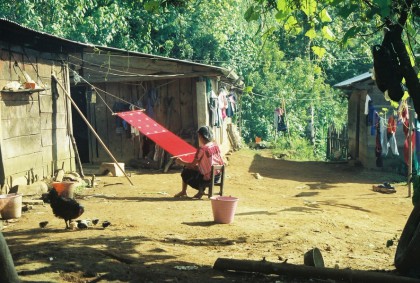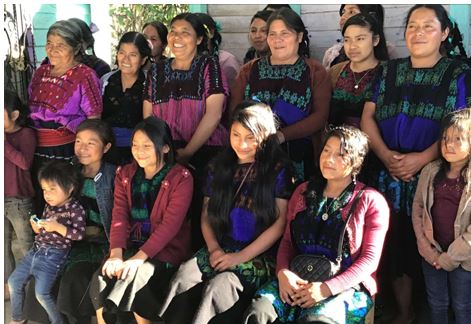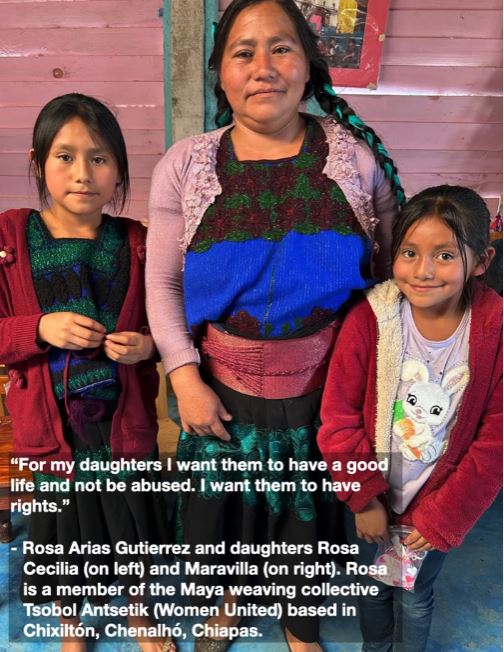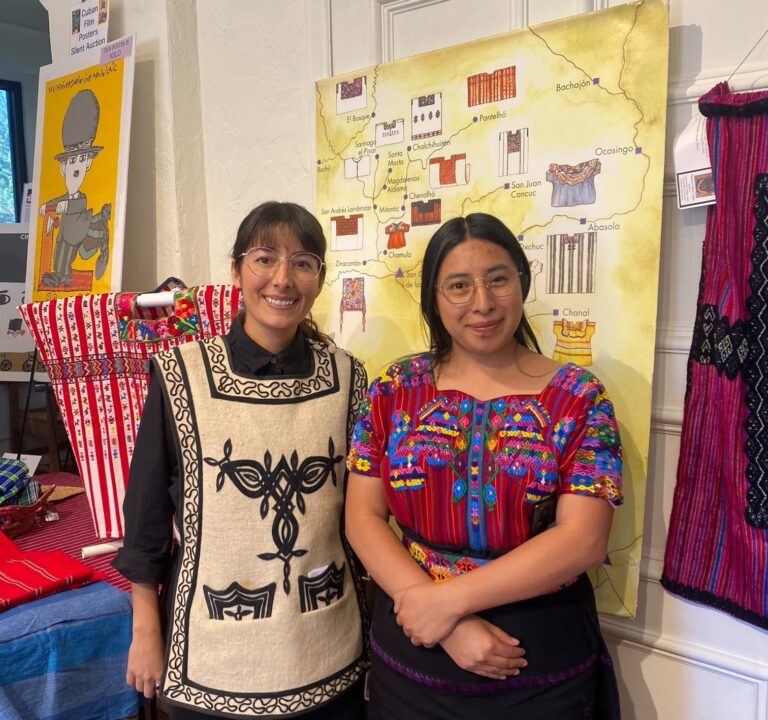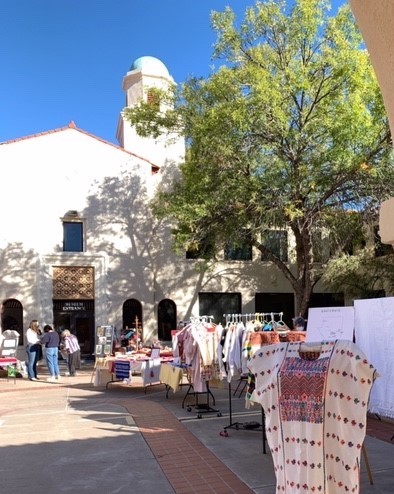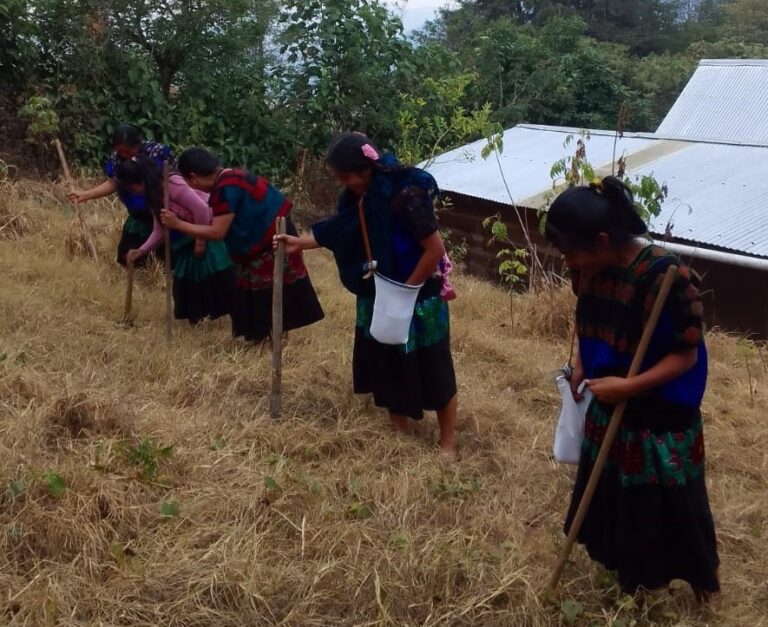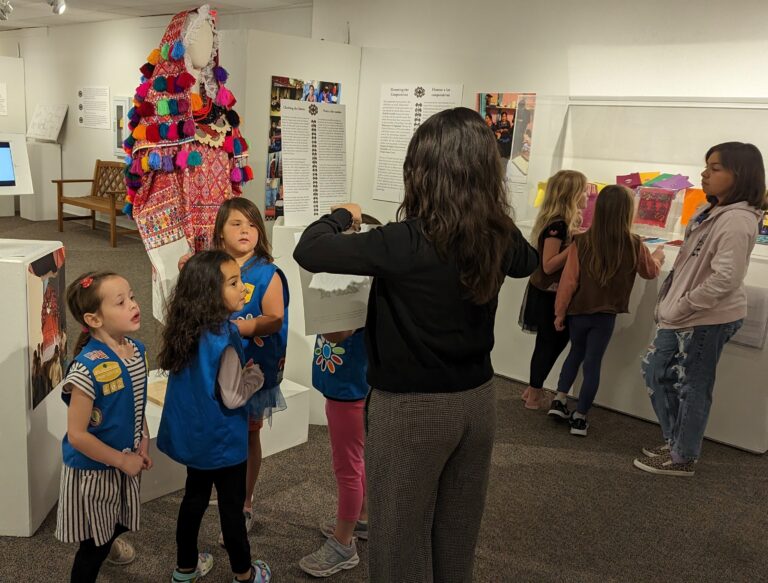We celebrate several decades of collaboration and friendship with nine groups of weavers, totaling about 196 women.
The weaving collectives we assist are Tsobol Antsetik (Women United), a group of 27 women and their children in the township of San Pedro Chenalhó, with a meeting house/store in the community of Chixiltón; Mujeres Por La Dignidad (Women for Dignity), a Zapatista collective of 70 women and 9 men with their headquarters in Oventic in the autonomous township San Andrés Sakam Ch’en de los Pobres; Jolom Luch Maya (Maya Weavers and Embroiderers), comprised of 24 women members of Las Abejas (The Bees), the Catholic social justice organization based in Acteal, Chenalhó; and several smaller groups of weavers from Tsabalho, Chenalhó, Aguacatenango, Chamula, Oxchuc, Pantelhó, Venustiano Carranza, and a doll-making group in San Cristóbal de Las Casas.
The weaving groups in our partnership are in the resistance, that is they do not participate in state and federal economic development projects that fail to take their needs into account. Instead, they rely on developing local economies of solidarity in collaboration with civil society organizations in Mexico and in the U.S. and other nations, including Weaving for Justice.
Many of the weavers are either Zapatistas or Las Abejas, two organizations dedicated to social and economic justice. On January 1,1994 thousands of armed indigenous men and women took over major population centers and hundreds of large ranches in Chiapas. Calling themselves the Zapatista Army of National Liberation after Emiliano Zapata, the revolutionary leader of Mexico, the Zapatistas rose up against the neoliberal economic policies enshrined in NAFTA, the International Monetary Fund’s structural adjustment programs, and federal policies that undermined the survival of small farmers in Chiapas and throughout Mexico. Civilian support bases for the Zapatistas soon formed in Chenalhó where Las Abejas (The Bees), a Catholic social justice organization, already had a strong presence.
When these groups began to create autonomous economic and political projects, the government responded with force. The Mexican army was sent to Chenalhó to crush the resistance movement, but they could not openly attack the Zapatistas because the Mexican Civil Society and the international community had risen up in support of their goals and demanded a peaceful resolution to the conflict. Therefore, the army trained and armed paramilitaries who began to violently evict Zapatistas and Abejas from their homes and commit other acts of violence against them. The worst example of this occurred in Acteal, a small hamlet in Chenalhó, where members of the Abejas communities had sought refuge from paramilitary aggression. On December 22, 1997, while they were fasting and praying in the chapel, a paramilitary group massacred 45 unarmed Abejas, the majority of them women and children. Tensions continue as the intellectual authors of the massacre enjoy impunity.
For more information about the Zapatistas and Las Abejas visit these websites: www.ezln.org.mx, www.enlacezapatista.ezln.org.mx, and www.acteal.org; for information about the human rights situation in Chiapas visit the website of the Fray Bartolomé de Las Casas Human Rights Center – (https://frayba.org.mx
If you are planning a trip to Chiapas and would like to visit the Tsobol Antsetik collective, please make an appointment and use these directions.
